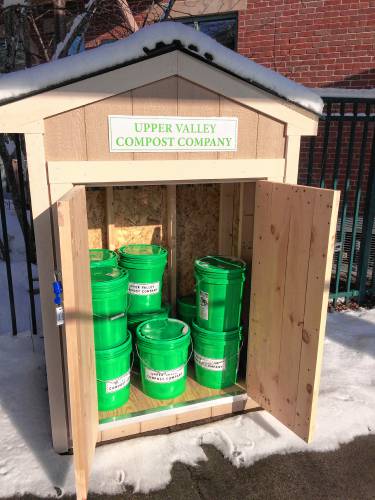Everybody agrees that composting food waste is a no-brainer – it creates useful soil-enhancing product and doesn’t take up landfill space. But actually collecting all the little bits of food that are discarded from kitchens and cafeterias all over the place, not to mention the banana peel sitting on my desk, is really, really hard.
Case in point: The Upper Valley Composting Company, which expanded to Concord in spring of 2018, has shut down. I’m not sure why, I assume the cost of going door-to-door collecting little buckets was far more than subscription fees and sales of compost could cover.
A related problem is facing composting companies southern Maine: They’re fighting over what collectible food waste exists because, as the Portland Press-Herald reports (story is here), “The supply line of garbage that can be converted into energy or compost is squeezed in southern Maine, where there is no mandate to separate food waste.”
Without municipally funded programs to collect residential food waste, the market will likely stay small and concentrated in southern Maine, Blackmer said. “Municipal curbside collection is the growth model for composting,” he said. “We might be two years away from that, five years away – it may never come.”
People hate doing any separation of their recyclables; I can’t imagine a whole lot of them will be enthusiastic about keeping a bucket of decomposing food in their kitchen and putting it out on the curb.


 Return to the Concord Monitor
Return to the Concord Monitor